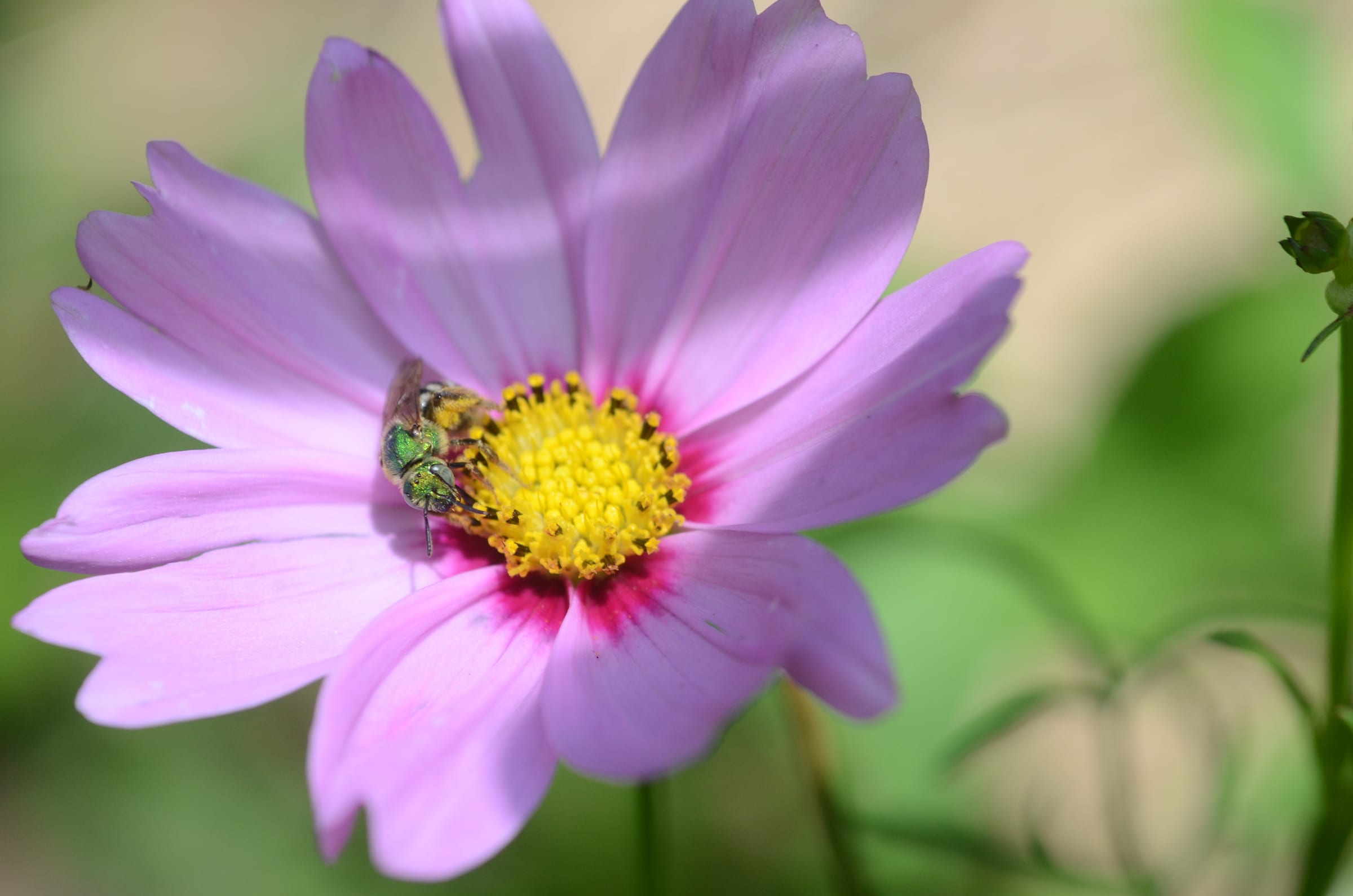
Gardening Green With Doug: Pollinators
by Doug Oster
May 27, 2020
A plethora of insects are feasting on the white flowers of a blooming spirea bush which overlooks the vegetable garden. Everything from fat native bees, to tiny little beetles are using the flowers as a food source. Those same insects will visit the vegetables and explore much of the rest of the garden too.
It makes sense for gardeners to help pollinators, as the pollinators help the gardener. The more things we have in the garden to attract and help them, the better. Not only are honey bees in decline, most of our native pollinators are too.
The first step in helping the good bugs is to eliminate chemical pesticides, herbicides and fertilizers. In today’s world it makes no sense to use any of those things in your garden. Every local garden center or nursery will have organic controls for any garden problems. When I discuss organic gardening, I don’t want to do it from a soap box, but the more of us that follow safe and healthy practices in the garden, the better off it is for us, our families and anyone living downstream. It also feels good to know that you’re a small part of helping these pollinators thrive.
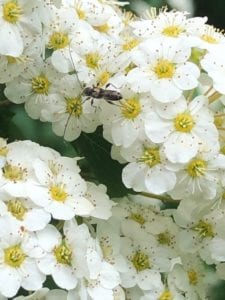
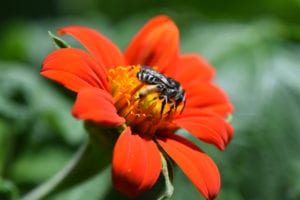
My organic epiphany happened over 30 years ago after dusting cabbage plants with Sevin on advice from a gardening friend. As I stood there proudly watching the cabbage worms die, my two year-old son walked barefoot through that white powder searching for snow peas. When I read the warnings of the bag of Sevin, I knew then things had to change and swore never to use chemicals again in the garden. As I researched this “new fangled” thing called organic gardening, I discovered that everyone was an organic gardener before WWII, because there were no chemical pesticides, herbicides and fertilizers before the war.
When I applied that broad spectrum pesticide, I accomplished my task in killing the bad bug, but I also killed all the good bugs and much of my soil life underneath. Those good insects and all the underground life help us garden.
One amazing thing about switching to organic growing is the realization of what a perfect balance Mother Nature creates in the garden. In fact, the only organic products used in my garden are a safe fungicide (rarely) and some Hot Pepper Wax to keep the rabbits at bay. Those cute little foragers always figure out a way through the fence.
Part of that balance is bringing in those pollinators and other good bugs too.
As we continue to plant our gardens, there are many plants which will attract pollinators. Take a few minutes to spend some time with your plants and watch the tiny universe unfold in front of you. We walk by our plants every day in our busy lives. You might be surprised at what you find when looking closely at the plants. It’s one of the wonders of having an organic garden.
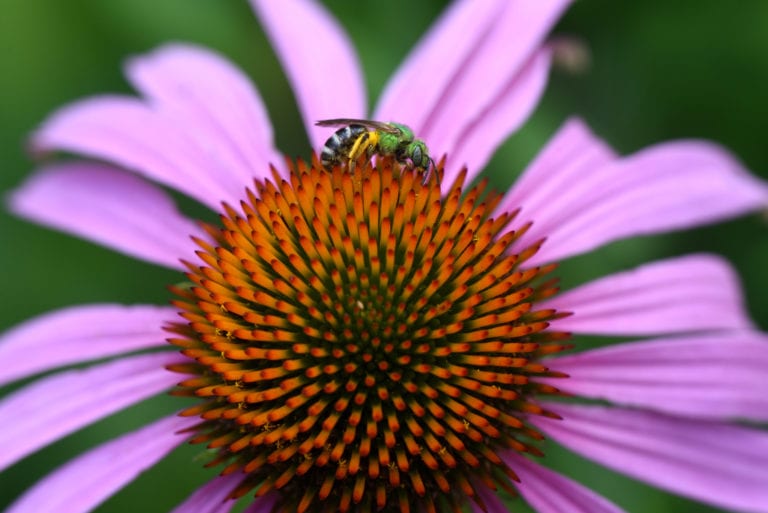
Here are some of Doug’s favorite plants for pollinators.
- Dill - I can remember an article from Organic Gardening Magazine three decades ago, which rated dill as one of the best plants for attracting good bugs. The great thing about dill is once you have it, you’ll always have it, as it drops seeds everywhere.
- Tithonia or Mexican Sunflower ‘Torch’- Track this plant down, it’s amazing. ‘Torch’ grows anywhere from six to 16 feet tall depending on soil and sun conditions. This sun lover will bloom though, with only six hours of sunshine and brings in more butterflies, bees, hummingbirds and more than anything else in my garden.
- Coneflower - We used to call them purple coneflowers, but there are a wide assortment of colors, shapes and sizes. For pollinators, stick with single flowers that make it easy for the good bugs to get what they need. Let the seed heads hang around at the end of the season as a treat for the birds.
- Natives - Native plants like milkweed, cardinal flower, mountain mint and purple giant hyssop are just a few of the thousands of beautiful and tough plants that our native pollinators need. Many local nurseries carry lots of natives and there’s one source in the Pittsburgh area which specialize in them. The Native Plant Center at Beechwood Farms in Fox Chapel is one of my favorite places. All the plants can be ordered online and picked up with curbside service.
- Zinnias - I recommend direct sowing them in the garden as opposed to buying in flats. They just always seem to do better for me. This is a great plant that’s easy to grow which will attract the good guys.
- Cosmos can also be direct sowed. The tall wispy versions of this plant will dance in the summer breeze while bringing in pollinators.
- Borage - The pretty blue flowers actually taste a little like cucumbers, the bees love this annual.
- Bachelor buttons (or cornflower) - Another easy to grow annual with blue flowers. Since everyone wants blue in their garden, try some.
- Weeds - Wild violets, dandelions, jewelweed, goldenrod, Joe Pye weed and lots of others are important plants for pollinators. Ask yourself a question, do you like the way some of these plants look? Then they are no longer weeds.
- There are hundreds of other great plants for pollinators.
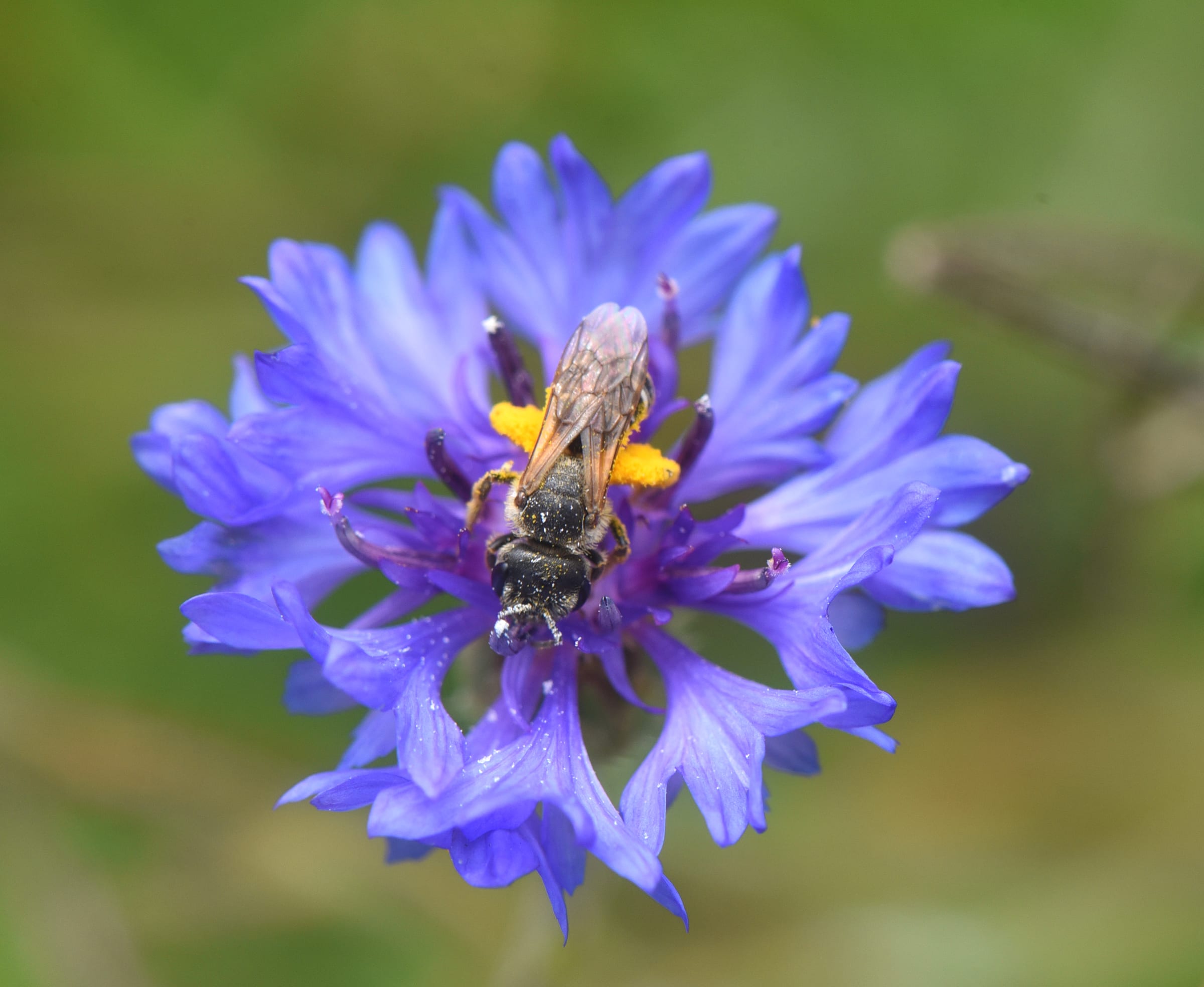

Leave A Comment